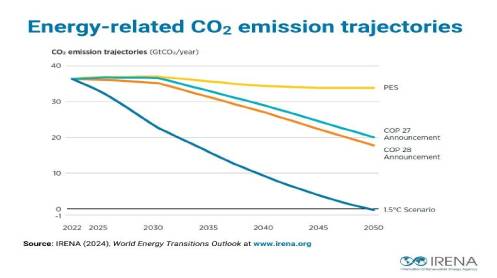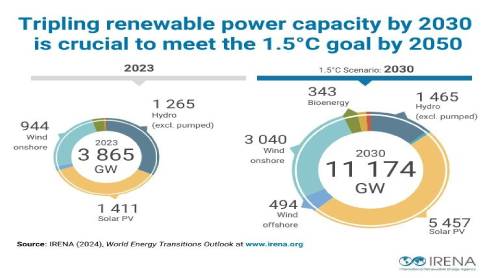Abu Dhabi, UAE/Baku, Azerbaijan, 11 November 2024 – As COP29 opens in Baku, the International Renewable Energy Agency (IRENA) has released its 2024 World Energy Transitions Outlook, urging countries to significantly strengthen their climate commitments in the upcoming third round of Nationally Determined Contributions (NDCs) in 2025. Current climate pledges fall short of what is required to limit global warming to 1.5°C, with the agency warning that achieving net-zero by 2050 will require a rapid scale-up in renewable energy and energy efficiency.

Under IRENA’s 1.5°C Scenario, renewable energy would account for 68% of electricity supply by 2030, increasing to 91% by 2050. However, fossil fuels still dominate many major economies’ energy mixes, creating a substantial emissions gap. To close this gap, the G20 needs to triple renewable capacity by 2030 and achieve 9,400 GW in renewable power, rising to 24,900 GW by mid-century.
Francesco La Camera, IRENA’s Director-General, stressed that the 2025 NDCs and a robust climate finance agreement at COP29 are pivotal. “The next NDCs will be a make-or-break moment for 1.5°C. Financial support must be scaled up, especially for the Global South, and G20 countries’ commitments must match global targets to triple renewables and double efficiency by 2030,” La Camera said.
Achieving the energy transition will demand USD 31.5 trillion in renewable power, energy storage, and grid enhancements from 2024 to 2030. International collaboration and new funding mechanisms, such as the global wealth tax championed by the G20, could accelerate these investments and support a just, equitable transition for all nations.






